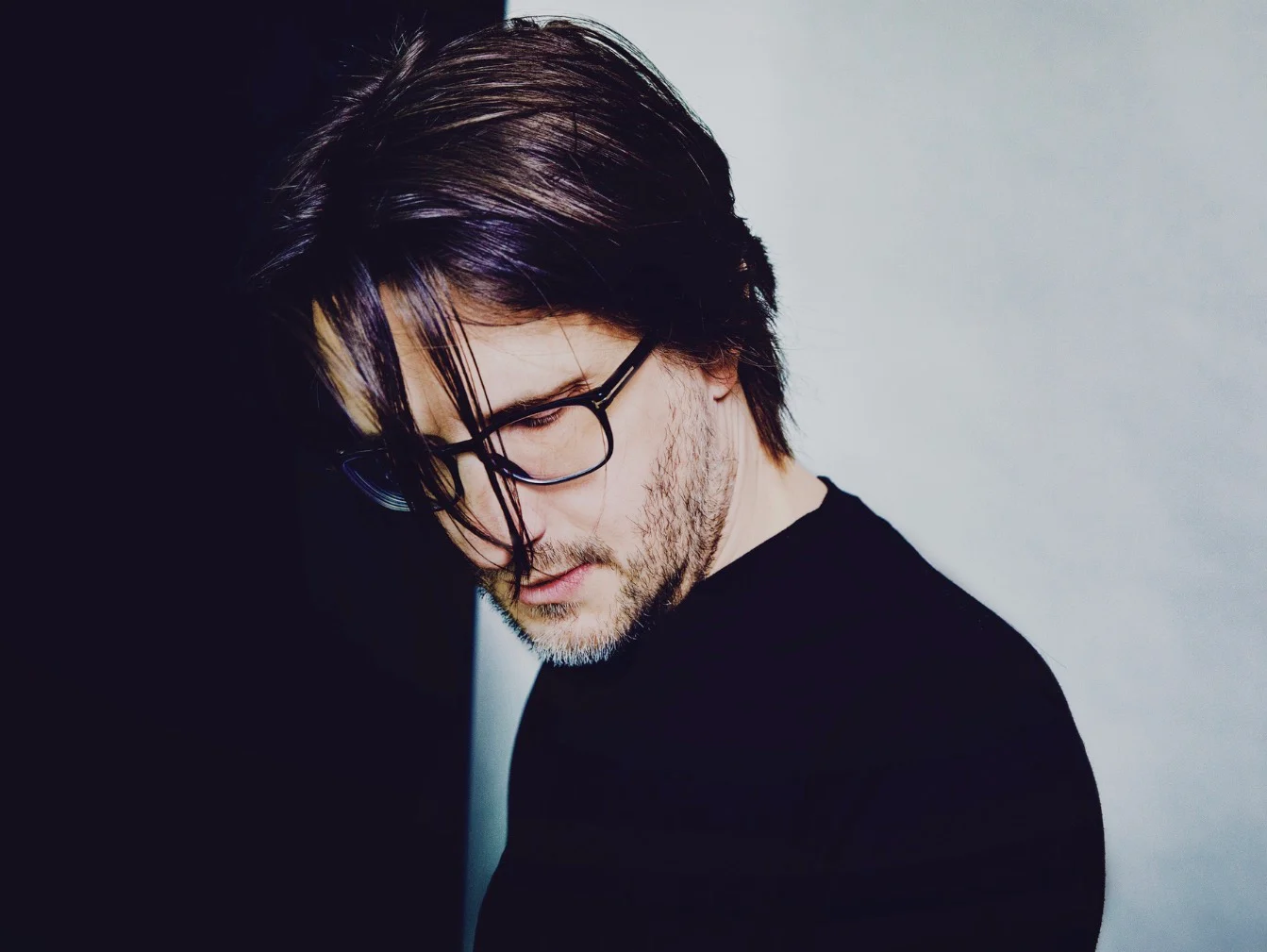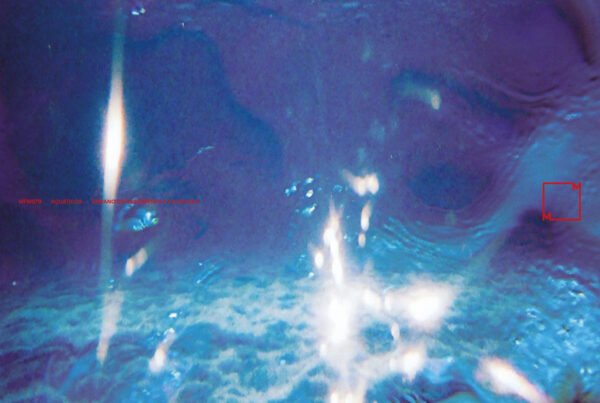As adventurous as ever and with renowned creativity, Steven Wilson embraces his experimental side with The Harmony Codex.
Release date: September 29, 2023 | Virgin/Spinefarm | Website | Instagram
It took me a while to actually decide to review this one. As a fan of Steven Wilson and most of his works for quite a long time now, he’s undoubtedly one of the artists that really changed how I view, approach, and value music in my life. So yes, I was excited for The Harmony Codex, but upon my initial listenings, I felt I wasn’t in the correct headspace to ‘get it’, so I put it aside for a while. Also, on a personal note, this is the first time I review an artist that is a huge part of my life, so I was kind of nervous to do it as well? In any way, almost a month into release, I feel like I finally understand how I feel about The Harmony Codex and how to put that into words.
One of the biggest names on the prog rock realm (a bit to his annoyance, as fans will know), Steven Wilson already had a legendary career on his Porcupine Tree days, a band that by itself already pushed the envelope, but his solo career proved that he was far from running out of creative juice. With landmark albums such as The Raven That Refused to Sing and Hand Cannot Erase, one of my all time favorite albums, Wilson had shown different layers to his music and songwriting, refusing to repeat himself with each album.
Despite his fame on the prog world, Wilson has always been big into pop. Some people were shocked at the poppy and electronic direction of his previous solo album The Future Bites, but those pop elements were present as early as his Porcupine Tree days and blatantly obvious on other projects such as Blackfield, so that was always part of his influences and musical DNA. I did not enjoy The Future Bites as much as his previous efforts though, so when he started to talk about the music that would shape itself to become The Harmony Codex as being very different from everything else he’s ever done, I was excited for what seemed to be a ‘return to form’ for him – not when it comes to genre, but to songwriting. And while it is not exactly what I expected, it is definitely a worthy addition to his glowing catalogue.
It is pretty clear from the get-go that the Porcupine Tree reunion album Closure / Continuation helped shape this album. While he does experiment with many genres, prog rock is always sort of there as a backbone, and when Porcupine Tree went all out in that direction, his ideas for this new solo album favored every other side to his music. This resulted in The Harmony Codex being his most experimental and ‘weird’ album since Grace For Drowning, with each song being widely different from the other.
I feel like this album is a real grower. Not just in the way that it gets better with more listens as you are able to assimilate more of it, but also because it keeps getting better towards the end. “Inclination” is a good opener – it didn’t blow my mind or anything, but it does a nice job on showing what The Harmony Codex is gonna get very experimental and different from his usual music. The song makes a very interesting use of silence, too: at first glance, the ‘fake ending’ about halfway through put me off, but on subsequent listens I do think it enhances the song’s comeback. “What Life Brings” is perhaps the most familiar sounding song here, as it is a bit reminiscent of Stupid Dream era Porcupine and Blackfield, one of my favorite sides to his music.
“Economies of Scale” is probably the most uninteresting song on the album, and I’m not sure it was the best idea for a lead single. The song isn’t bad, but I’m not a fan of the chorus and as a whole it sounds a bit uninspired, specially when you take into account how good the man can be when he is inspired. In a complete turnaround, “Impossible Tightrope” was a wild choice for a single, as it is one of his trippiest works to date. Starting as a prog rock epic, it echoes some of his early, Pink Floyd inspired psychedelic work as well as some spicy jazz, and keeps reinventing and transcending itself. Around the halfway point, it kind of sounded like something Devin Townsend could do with that epic, spiritual interlude, and it gets straight up gorgeous in its climax. This is the one that proved to me that Steven Wilson is not quite past his prime still has it in him to release some of his best material.
This great point was beautifully followed by another collaboration with Ninet Tayeb, which featured on some of Wilson’s best emotional songs like “Routine” and “Pariah”. Her voice is a wonder, and the duo continues to work really well together. It is after this song, however, that The Harmony Codex truly begins to sound more like an album than a collection of songs, I think. “Beautiful Scarecrow” is a slower, somber song that sounds very unique to his music: it is kind of a trip hop song, but not quite. It’s this creativity that makes his solo work shine, and I’m very glad to hear more of it. The title track keeps exploring the unknown, a real trippy journey that is a total dive into his Tangerine Dream adjacent music and has that floaty, ‘voyage into space with zero gravity’ feeling, if that makes any sense.
While it took a while for the album to click with me, “Actual Brutal Facts” stood out pretty quickly. Flirting with rap and with a immersive, gripping beat and atmosphere, it is just a banger from top to bottom. The album ends on its highest note with the epic closer “Staircase”, an instant classic that makes the album come together, as it does sound like a mash of everything you’ve heard so far in a way, and is the right amount of epic and bombastic this album needed to make a lasting impression.
While I don’t adore The Harmony Codex in its entirety, the better part of it is truly something. I do think the album kind of glues itself together as it progresses, but it never quite crafts its own proper identity. Perhaps this is intentional and part of the concept, as the cover features many colors that are part of the same shape but do not mesh. In any case, some of these songs are amongst his best work ever, and with a body of work as massive as his, that’s a huge win.
I do not think it will win over many new people, as this is way too experimental to be approachable by newcomers, but longtime fans that appreciate his creativity and aren’t focused on the idea of genre can find a lot to love and at least a handful of songs to latch onto. This is Steven Wilson breaking free of genre constraints, proving that music is way larger than the labels we try to put on it. When people ask you what the album is like, you can say it is electronic, rock, jazz, psychedelic and much more all at the same time. But I think the best answer for that is: it is Steven Wilson being himself and reinventing himself, once again.






